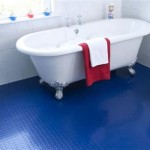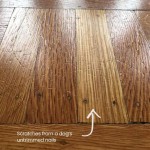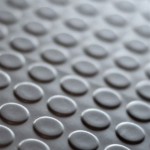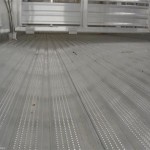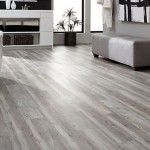What Type of Hardwood Flooring Is Best For Dogs?
Selecting the right hardwood flooring for a home with dogs requires careful consideration of several factors. Dogs can pose unique challenges to hardwood surfaces due to their nails, potential accidents, and tendency to track dirt. Choosing a durable, scratch-resistant, and water-resistant hardwood species in conjunction with an appropriate finish can mitigate these issues. The aim is to find a balance between aesthetic appeal and functional resilience to ensure the flooring remains attractive and functional for years to come.
The impact of dogs on hardwood flooring manifests in several ways. Scratches are a primary concern, as even trimmed nails can leave visible marks over time. Accidents, such as urination or vomiting, can cause staining and warping if not addressed promptly. Furthermore, dogs often bring in dirt, mud, and other debris from outdoors, accelerating wear and tear on the floor’s surface. Taking preventative measures like regular nail trimming, prompt cleaning of accidents, and the use of mats in high-traffic areas can help prolong the life of the hardwood flooring, regardless of the specific type chosen.
Hardness and Durability of Wood Species
The Janka hardness scale is a widely used measure to determine the relative hardness of different wood species. This scale measures the force required to embed a steel ball bearing halfway into a piece of wood. A higher Janka rating indicates a harder and more durable wood, better suited for withstanding the wear and tear associated with dogs. While no hardwood is completely scratch-proof, harder species are less prone to visible damage from everyday dog activity.
Brazilian Walnut, also known as Ipe, is often cited as one of the most durable hardwood options for homes with dogs. Its exceptionally high Janka rating (around 3680) makes it highly resistant to scratches and dents. This density also contributes to its water resistance, reducing the risk of damage from spills and accidents. However, Brazilian Walnut can be a more expensive option compared to other hardwood species.
Other durable hardwood options with good Janka ratings include Hickory (around 1820), Hard Maple (around 1450), and Red Oak (around 1290). Hickory offers a rustic aesthetic and excellent impact resistance, making it a good choice for active dogs. Hard Maple is known for its clean, consistent grain and durability, although it may show scratches slightly more readily than Hickory. Red Oak is a popular and relatively affordable option that provides a good balance of durability and cost-effectiveness.
Softer wood species like Pine (Janka rating around 870) and Cherry (Janka rating around 950) are generally not recommended for homes with dogs. These woods are more susceptible to scratches and dents, and require more diligent maintenance to prevent damage. While they may offer a desirable aesthetic, the increased risk of damage from dog activity outweighs the potential benefits in many cases. Choosing a harder wood species provides a more resilient and long-lasting flooring solution.
Beyond the Janka rating, the grain pattern of the wood can also influence its perceived durability. Woods with prominent grain patterns, such as Oak, can help conceal minor scratches and imperfections. In contrast, woods with finer, more uniform grains may show scratches more readily. Consider the grain pattern in addition to the Janka rating when assessing the overall suitability of a wood species for a home with dogs.
The Importance of Floor Finish
The finish applied to hardwood flooring plays a critical role in its resistance to scratches, stains, and moisture. A durable finish acts as a protective barrier, shielding the wood from the everyday wear and tear associated with dogs. The choice of finish should be carefully considered to ensure long-term performance and aesthetic appeal. Several finish types are available, each with its own advantages and disadvantages.
Polyurethane finishes are a popular choice due to their durability and water resistance. Oil-based polyurethane finishes offer excellent durability and a warm, amber hue, but they can take longer to dry and emit strong odors during application. Water-based polyurethane finishes are lower in VOCs (volatile organic compounds), dry faster, and offer a clearer finish, but they may not be as durable as oil-based options. However, advancements in water-based polyurethane technology have resulted in products that rival the durability of oil-based finishes.
Aluminum oxide finishes are known for their exceptional durability and scratch resistance. This type of finish is commonly used in prefinished hardwood flooring and offers a very hard, protective surface. However, aluminum oxide finishes can be difficult to repair if damaged, requiring refinishing of the entire floor in some cases.
Penetrating oil finishes, such as tung oil or linseed oil, penetrate the wood fibers to provide protection from within. These finishes offer a natural look and feel, but they require more frequent maintenance than polyurethane finishes. They are also less resistant to water damage and stains. While they can be a good option for those seeking a natural aesthetic, they may not be the best choice for homes with dogs due to their lower durability.
Consider the sheen level of the finish as well. Matte or satin finishes tend to hide scratches and imperfections better than high-gloss finishes. High-gloss finishes reflect more light, which can accentuate scratches and dirt. Choosing a lower sheen level can help maintain a cleaner and more uniform appearance over time, especially in homes with dogs.
Regardless of the finish type chosen, proper application is crucial for optimal performance. Follow the manufacturer's instructions carefully and ensure adequate ventilation during application. Multiple coats of finish are typically required to achieve the desired level of protection. Hiring a professional flooring installer can help ensure a high-quality finish that will withstand the demands of a household with dogs.
Alternatives to Traditional Hardwood
While hardwood flooring offers a classic and elegant aesthetic, alternative flooring options may be more suitable for homes with particularly active or accident-prone dogs. These alternatives aim to replicate the look of hardwood while providing enhanced durability and water resistance. Consider these options when evaluating the best flooring choice for a dog-friendly home.
Luxury Vinyl Plank (LVP) and Luxury Vinyl Tile (LVT) are popular alternatives to hardwood. These materials are highly durable, waterproof, and scratch-resistant. LVP and LVT are designed to mimic the appearance of wood or tile, offering a wide range of styles and colors. They are also relatively easy to install and maintain, making them a practical choice for busy households with dogs. The embossed texture on some LVP and LVT products can further enhance the realistic wood-like appearance.
Engineered hardwood flooring consists of a thin layer of hardwood veneer bonded to a core of plywood or high-density fiberboard. This construction provides increased dimensional stability compared to solid hardwood, making it less susceptible to warping or cupping in humid environments. While engineered hardwood is not as resistant to scratches as some other alternatives, it can still be a good option for homes with well-behaved dogs, especially when combined with a durable finish and regular maintenance.
Tile flooring, particularly porcelain tile, is another durable and water-resistant option for homes with dogs. Tile is highly resistant to scratches and stains, and it is easy to clean. While tile can be cold and hard underfoot, area rugs can be used to provide warmth and comfort. Wood-look tile is available in a variety of styles that mimic the appearance of hardwood, offering the aesthetic benefits of wood with the practical advantages of tile.
Laminate flooring is a cost-effective alternative to hardwood, but it is generally less durable and water-resistant than LVP or tile. Laminate consists of a photographic image of wood bonded to a core of particleboard or fiberboard. While some laminate products offer enhanced scratch and water resistance, they are typically not as durable as other alternatives. Laminate may be a suitable option for homes with small, less active dogs, but it is generally not recommended for homes with large or energetic dogs.
When considering alternatives to traditional hardwood, evaluate the specific needs and lifestyle of your household. If durability and water resistance are paramount, LVP, LVT, or tile may be the best options. Engineered hardwood can be a good compromise, offering a more authentic wood look with improved stability compared to solid hardwood. Weigh the pros and cons of each option to determine the best flooring solution for your home and your canine companions.

The 10 Best Types Of Wood Flooring For Dogs Floorings

How To Choose The Best Flooring For Dogs Home Depot

How To Choose The Best Flooring For Dogs Home Depot

Best Hardwood Floors For Pets Bargains Blog Www Hardwoodbargains Com

How To Choose The Best Flooring For Dogs Home Depot

How To Choose The Best Flooring For Dogs Home Depot

Helios Composite Deck Tiles 6 Slat Outdoor Flooring
.png?strip=all)
What S The Best Dog Friendly Flooring America

What S The Best Flooring For Dogs Inc

How To Choose The Best Flooring For Dogs Home Depot
Related Posts


